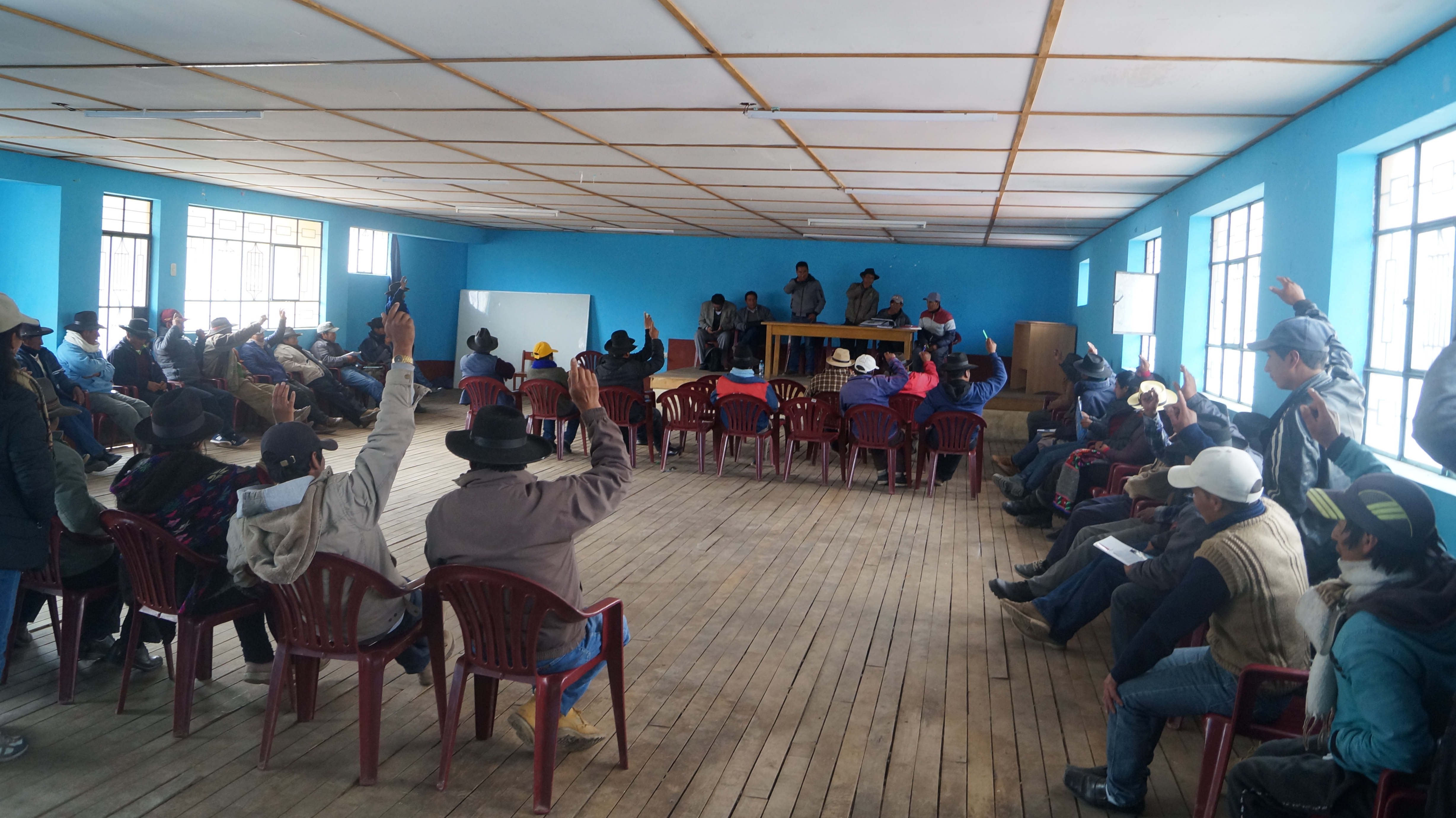

Dans le cadre de la composante "Renforcement de l'organisation communautaire", le projet a travaillé avec la communauté de Tanta pour développer une stratégie de gestion du bétail, avec l'appui d'un spécialiste, afin d'améliorer la gestion du bétail dans le territoire agricole de la communauté. L'objectif était de renforcer le processus de prise de décision collective de la communauté en ce qui concerne la gestion de ses ressources naturelles, contribuant ainsi à la récupération des zones de pâturage, ce qui à son tour assure le niveau nécessaire de nourriture pour le bétail et améliore à la fois la productivité et les services écosystémiques pour la régulation de l'eau.
La stratégie de gestion du bétail est le fruit d'un processus participatif facilité par l'Instituto de Montaña et mené par les autorités et le département du bétail de la communauté (comité). Dans le cadre de ce processus, des supports visuels (cartes et infographies) ont été élaborés pour représenter graphiquement le plan de gestion proposé et la rotation du bétail entre les différents secteurs de la ferme communale. Ces supports visuels sont exposés dans les locaux de la communauté afin que les membres de la communauté puissent suivre le plan et les accords et engagements pris par tous.
- Approche participative de la prise de décision et de la planification.
- Intérêt et engagement de la population locale.
- Relation de confiance entre la communauté et les institutions chargées de la mise en œuvre.
- Disponibilité et engagement des autorités responsables, telles que les conseils d'administration et les comités spécialisés.
- Connaissances traditionnelles de la population locale et connaissances techniques des experts externes.
- Participation de l'équipe de la réserve paysagère de Nor Yauyos-Cochas (NYCLR).
-
Travailler au renforcement et à l'organisation de la communauté est un processus qui prend du temps mais qui est essentiel pour obtenir des résultats à long terme.
-
Le projet doit être suffisamment flexible pour modifier les plans face à des situations inattendues. Cela contribue également à l'instauration d'un climat de confiance.
-
Face à la méfiance initiale envers les institutions extérieures, la présence permanente du personnel de terrain de l'Instituto de Montaña et son implication dans la vie quotidienne de la communauté ont été importantes.